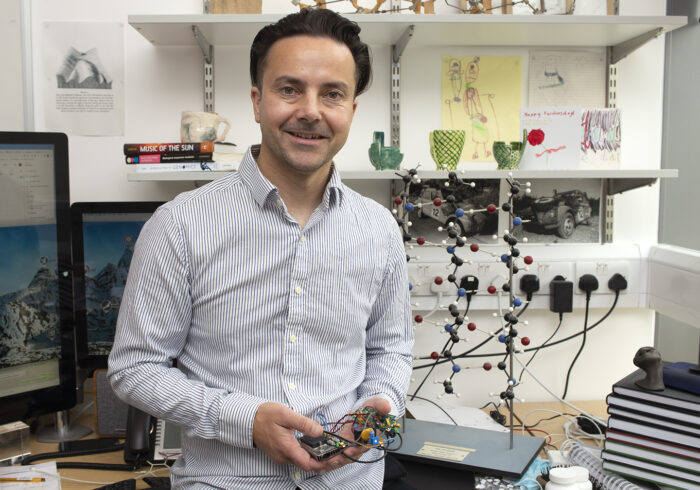
Julian Gough, a Group Leader in the Structural Studies Division, has been named the Cambridge Enterprise Academic Entrepreneur of the Year in the 2020 Business Weekly Awards. Julian has been recognised for his work with Mogrify®, a company that he co-founded while at the University of Bristol with the aim to apply his research on cell reprogramming to the development of cellular therapies.
The Business Weekly Awards help to build a bridge between industry and academia, while celebrating science and technology companies and entrepreneurs in Cambridge and the East of England, with the Academic Entrepreneur of the Year award recognising outstanding work by an academic as an innovator, founder or consultant in the past 12 months.
Julian’s group’s research spans all scales of biology, from the level of DNA, proteins, and individual interactions through to whole organism characteristics and phenotypes, with the aim to combine these levels of understanding into development of innovative technologies. One application of this is in the field of regenerative medicine through prediction of factors that drive cellular reprogramming from one type of cell to another.
The idea of cellular reprogramming is based on the observation that the variation in human cell appearance and function is derived from a complex regulatory network that modulates gene expression, such that introduction of certain transcription factors can reprogram one type of cell into another. Initially this was used to return adult cells to stem cell-like states that could then be differentiated into other adult cell types.
One aspect of Julian’s group’s research aims to identify sets of transcription factors that can be introduced to any chosen cell-type to directly trans-differentiate it to another target cell-type, without the stem cell intermediate. These sets of transcription factors are first predicted by an algorithm developed by his group and then validated in cell conversions. Working with Mogrify allows translation of the findings of Julian’s group’s research towards potential future clinical benefit.
Julian: “I am both grateful and excited about the award. I feel so privileged that the fundamental science that I do at the LMB has a clear path to clinical translation.”